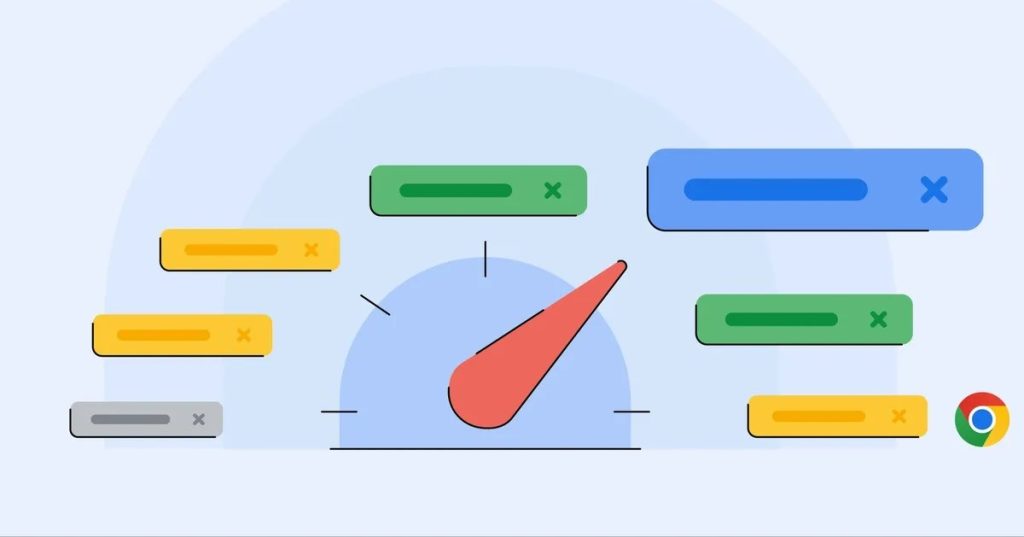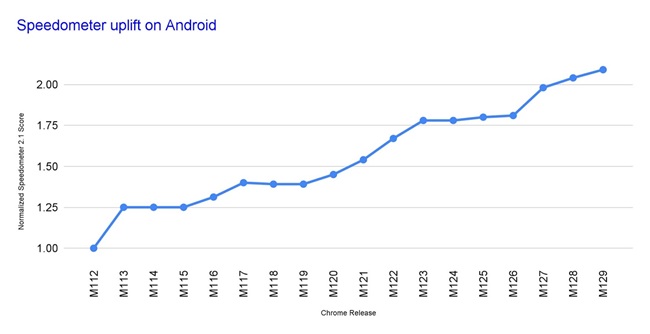

Google on Wednesday outlined significant improvements in Chrome for Android, focusing particularly on the Speedometer benchmark. The company claimed that Chrome now delivers best-in-class Speedometer scores, emphasizing its ongoing commitment to making the browser “even faster.”
Speedometer and Real-World Performance
Google explained that Speedometer is a key benchmark for assessing browser performance, as it reflects real-world scenarios. It measures Chrome’s efficiency in handling web interactions, such as parsing/rendering HTML, CSS, and executing JavaScript.
Since the release of Chrome M112, Google noted a significant increase in Speedometer 2.1 scores on Android devices, with scores more than doubling on several devices. The Snapdragon 8 Elite Mobile Platform set new records, and Google claimed these improvements are the result of collaboration with silicon and system-on-chip (SoC) partners.


Build Optimizations: Key to Speed Gains
Google attributed more than half of the Speedometer improvements to build optimizations. In Chrome M113, the company introduced a “premium build” for high-end Android devices. This build is optimized for speed rather than binary size and leverages ARM64 features. It also applies modern compiler techniques, including:
- Targeting ARM64: Utilizing efficient instruction sets and larger 64-bit operations.
- Compiler Optimizations: Switching to speed-focused (-O2 / -O3) C++ code compilation and refining inlining for hot code.
- Profile-Guided Optimization (PGO): Enhancing code layout and optimization for frequently used functions.
- Cross-Function Code Ordering: Aligning Chrome’s orderfile generation with the new ARM64 build.
Google also noted the inclusion of Speedometer 3 workloads in the optimization process. Collaboration with Arm was pivotal in identifying inefficiencies and improving Chrome’s PGO setup.
V8 and Blink Engine Improvements
Google highlighted several enhancements to its JavaScript (V8) and rendering (Blink) engines:
- New Compiler Tiers: V8 introduced the Sparkplug compiler for faster non-optimized code and Maglev for mid-tier optimized code, improving performance and power efficiency.
- Optimized Parsing: A fast-path HTML parser now handles innerHTML attributes more efficiently. Incremental updates were also made to parsing, style, layout, and text rendering engines.
- Garbage Collection: Adjustments were made to ensure garbage collection occurs during idle times or when users leave a page.
Scheduling, OS, and SoC Collaboration
Google said it worked closely with partners like Qualcomm to optimize Chrome’s interaction with the operating system. Tuning thread scheduling and frequency scaling policies on the Snapdragon 8 Elite platform resulted in a 60-80% improvement in Speedometer 3.0 scores compared to its predecessor. These collaborations also identified further opportunities for Chrome optimization.
Real-World Impact
Faster Speedometer scores directly translate into improved user experiences, such as faster page loads and smoother interactions. For instance, loading a Google Docs document on the Pixel Tablet is now over 50% faster than before these improvements.
Google noted that these optimizations make Chrome faster, enhancing the overall browsing experience for Android users. The combination of faster page loads, smoother web app performance, and improved speed reflects Chrome’s continued focus on performance.
